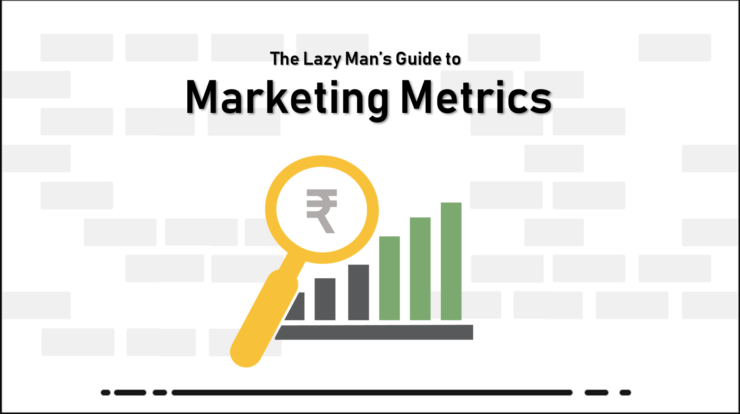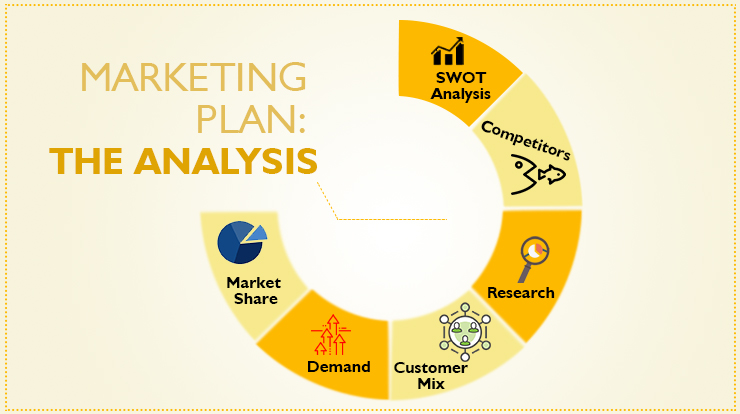
In our marketing classes, we weren't taught Budgeting in Great Detail. This forces us to think whether budgeting is an essential part of marketing or not! To your surprise, budgeting is very important and an essential part of marketing and advertising. But why? Let us understand.
Importance of Budgeting in Marketing and Advertising
Marketing is considered to be one of the most creative domains in MBA. Rarely, people associate it with managing funds; budgeting is a very far away thought in this scenario. The following points will break this myth for you:
- Helps in Achieving Goals and Targets – As a marketing manager, budgeting will help you set specific monetary targets for your team. It will provide you with a tracking mechanism to keep an eye on your goals!
- Financial Efficiency – Marketing requires a lot of funds to run various campaigns and activities; managing these funds is a very tedious job for marketing and advertising managers. Budgeting will help you make sure every penny you spend is worth it. Even in your B-school event, it will help you to spend every rupee most efficiently.
- Decision-Making – After preparing budgets, you will also need to match it with the actual expenditures; this is called controlling. If there are any deviations in the actual and prepared budget, controlling will help you find the source of the deviations. Finding the culprit will help you to make better decisions for the future.
- Over-Spending – Marketing is notorious for over-spending; one reason for this could be that there is less accuracy in calculating its returns. In this scenario, budgeting helps you keep track of all the expenses incurred in different campaigns and activities.
- Preparing for Contingencies – If you have organised any of your B-school events, then I am sure you must have known that emergencies can arise at any time due to any reason. In that scenario, as the head of the marketing department, you need to be prepared with sufficient funds. Budgeting will help you in making efficient use of your resources and save for these contingent situations.
I hope, by now, you must have understood the importance of budgeting in marketing. Now, we can move forward to understand various budgeting methods in marketing.
Also Read: Introduction to Accounting for Marketers
Budgeting Methods in Marketing
As a budding marketing manager, you must understand that there are no rigid methods and rules in budgeting, it depends upon your reasoning, but it must be justifiable. You can use any of the below-given budgeting methods in marketing: -

Percentage of Sales Method
This is one of the most preferred methods of advertising budgets. Under this method, the promotional and advertising expenses are forecasted on the basis of the last year's percentage of sales.
For example – You are the manager of Maggie and your company incurred Rs. 30 lakhs on advertising in the previous year. Last year's sales figure was Rs. 70 lakhs and forecasted sales figure is Rs. 1 Crore. Now, your advertising expenses were 42.8% (30 lakhs / 70 lakhs) of sales in the previous year. According to this percentage of sales, your forecasted advertising budget will be Rs. 42,85,714.28. This way you can forecast your expenses.
The following are the steps to follow-
- Make sure that there is some Correlation between Sales and Expenses to be Forecasted. There is no point in following this method if there is no correlation between the items and the sales. To give you a simple example of travel expenses of sales staff; these expenses will be a part of your marketing expenses, but they are not related to the magnitude of the sales.
- Estimate the Forecasted Sales for the Coming Period.
- Calculate the Percentage of Sales and then Apply the same to estimate the expenses for the coming period.
The merits and demerits of the percentage of sales method are given below:
Merits –
- It is one of the easiest and quickest methods of all the advertising budget methods.
- It helps in maintaining parity with competitors as most of the players in the industry follow this method.
Demerits –
- All the items in a marketing budget are not related to sales but are fixed. For example – Rent paid, travel expenses etc. Forecasting these methods using the percentage of sales method is not accurate.
- Only sales are given the top priority; other objectives of advertising and marketing are neglected.
Objectives and Task Method
In the previous method, the advertising budget will decrease with decreasing sales. But don't you think that with declining sales advertising budget should increase to boost sales? This leads to a circular cycle of declining sales and advertising budget. Hence, this method of 'objectives and task' is considered one of the most logical methods among all the budgeting methods in advertising.
Under this method, the objectives and goals of marketing and advertising are decided. These goals can be in terms of sales, profits, consumer loyalty, competition etc. Then necessary tasks are decided that must be performed to achieve the established objectives. The sum total of the costs of each of the task is the advertising budget.
The following are the steps to follow:
- Setting Advertising Objectives; your objective could be increasing sales by 20% in the next 6 months or increasing profits by 10% by next year.
- Deciding Specific Tasks to be Performed; if you are a marketing manager and your target is to increase sales by 20%, you may decide to launch a celebrity-driven advertising campaign on social media.
- Estimating Costs; here, you need to decide the exact costs required to perform the decided tasks.
Merits and demerits of this method are given below:
Merits –
- It is goal specific rather than being dependent on just sales figure of the previous year.
- It is more scientific and logical amongst all budgeting methods in marketing.
Demerits –
- It is time-consuming.
- It may lead to huge advertising budget that is impractical to afford by the company; the whole budget will be useless then.
Competitive Parity
I am sure most of you must be bothered about what your peers are doing rather than focusing on your studies during the exam time, right? Not only during exams, but we also do this most of the times. This method of budgeting is based on the same phenomenon of 'Gazing at Our Competitors'.
Under this budgeting method, you need to look at your competitors' budget that how much percentage of sales they are setting aside for advertising budget. Then, you will budget your marketing activities accordingly. Most FMCG companies follow this strategy; they are hugely dependent on product differentiation; hence, they need to have a keen eye on what their competitors are doing. This must happen in your B-school's clubs and committees as well!
But you need to make sure that you "Do Not Follow" your competitors blindly. Functional committees advertising budget will be way different from annual fest's committees'; I am sure you have got the point!
Merits and demerits of this method are given below:
Merits –
- It is simple and less expensive than other promotional budget methods.
- You can benefit from the mistakes committed by your competitors.
Demerits –
- New entrants in the industry cannot follow this strategy as it is difficult for them to follow the advertising expenses of established players.
- The goals of competitors may be different than yours; your goal maybe is to increase sales while your competitor's goal is to create brand awareness; then it is difficult to look at what your competitor is doing.
Affordable Method
No matter whatever budget you decide for your B-school event or your company, everything at the end boils down to "What You Actually Can Afford". This method is based on a similar thought. Under this method, companies decide based on how much funds they have. If there are no funds available, the company has to go without advertising. Small companies and start-up usually go with this method.
Following this method does not mean that you cannot create a huge advertising or promotional campaign. With the rise of digital marketing, there are many tools which any company can adopt without spending huge funds. The Chumbak, a décor product selling company, is a great example of a company that followed this budgeting method and became a huge success!
Merits and demerits of this method of budgeting are as follows:
Merit –
- It is suitable for small companies with limited funds.
Demerits –
- It ignores the importance of advertising and considers entirely it as a residual activity.
- There is an ambiguity in whether this method would help or not, as it completely ignores the marketing and advertising objectives and requirements of a company.
Market Share Method
This method is based on the market share of a company. For a company which has higher market share, less amount is set aside for its advertising budget. It is based on a notion that already established and renowned companies need not have to spend huge bucks on promoting their brand. Companies with lower market share have to spend more on their marketing and advertising budget if they follow this budgeting method.
Merits and demerits of this method are given below:
Merit –
- It is simple as compared to other advertising budget methods.
Demerit –
- The method is based on a vague basis of market share, whereas companies' own advertising and marketing objectives are ignored.
These are the commonly followed budgeting methods in marketing. I hope you have a fair idea of all the budgeting methods and their Merits and Demerits. I am sure now while making a marketing or advertising budget for your next B-school event; you will not be confused regarding which method to follow. Apart from this, it is also vital for you to know what are the factors that affect your budgeting decisions.
Factors Affecting Budgeting Decisions
There are five factors that you need to decide, as future marketing professionals, before setting your advertising budget:
- Market Share – If your company's market size is large, it will mostly require less advertising budget than other companies. But it depends upon industry to industry as well, in mobile phones and FMCG industries, even big players have to incur huge advertising costs.
- Competition – The companies in highly competitive industries require huge funds to do aggressive advertising to differentiate themselves from their competitors. If your industry has multiple players, then you need to plan your advertising budget accordingly.
- Product Life-Cycle Stage – The stage of your company or product will also affect the advertising budgeting decisions. Companies in the introduction and decline stage require more advertising funds to run aggressive campaigns.
- Advertising Frequency – The number of times you want to repeat your campaign ads and other activities to put a clear message of your brand will also affect the advertising budget.
- Product Substitutability – The homogeneous products require huge advertising funds for differentiating their products from competitors. Examples could be Soft drinks, banks, mobile phones, personal care products etc.
These all are the things you need to keep in mind before estimating your budget before deciding the appropriate method amongst all the budgeting methods in marketing.
Conclusion
- Budgeting is important for the marketing department as it helps in defining goals and setting objectives, decision-making, saving money and controlling overspending.
- There are various budgeting methods in marketing; but it depends upon the nature of the company, product and industry which method to use.
- There are various factors like market share, stage of product life-cycle, substitutability of your product etc.; that you need to consider before deciding your advertising budget.








Vidushi i really appreciate in the way you had described .. covered all the points… Good very informative